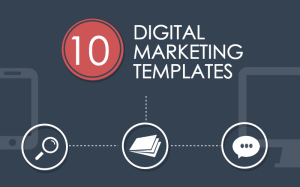— September 18, 2017

StartupStockPhotos / Pixabay
Startups are sexy.
Just as you’re trying to enjoy your Kale smoothie in peace, you bump into yet another self-proclaimed entrepreneur boasting about their new startup. How their company is set to become the Uber of Augmented Reality Cat Litter Delivery By Edge Cloud Artificial Intelligence-Enriched Drone™. How their mission is to change the world, one organically-grown matcha latte at a time.
It’s enough to put you off your avocado on toast.
But while they’re clearing space in the spare bedroom to launch the next unicorn, the truth is that 90% of these people don’t have a startup. In the best case, they have a small business. In the worst case, they have a hobby.
Just Because It’s A New Small Business Doesn’t Make It A Startup
Wikipedia defines a startup company as “…an entrepreneurial venture which is typically a newly emerged, fast-growing business that aims to meet a marketplace need by developing a viable business model around innovative product, service, process or a platform.”
Read that last bit again: “Innovative product, service, process or a platform.”
An example of an “innovative product or service”? How about Lemonade, a peer-to-peer rental and homeowners insurance company offering home insurance for $ 35 a month via an app, all without using any human brokers. Or Zipline, a fleet of drones designed to deliver up to 3 pounds ( 1.5Kg ) of blood or medicine faster than a motorcycle, or to hard-to-reach locations.
You know what’s not innovative? An IT consultancy servicing local businesses. A Shopify website selling cosmetics bought in bulk from China. A social network aimed at musicians.
Startups Aren’t Your Average Small Business
A startup may well be a new business, but that doesn’t mean every new business is a startup. The business goals for most startups are very different to those of the average small business.
Startups are all about growth – rapid growth. Everything they do – product/service features, distribution, pricing, support, marketing – is to appeal to what most small businesses would consider a large target market. Now that market may well be ‘niche’, but it will still represent thousands – if not millions – of customers/users.
A small business, on the other hand, isn’t necessarily looking for such a huge customer base. You don’t have to have a big market – you just need a market. In business parlance a small business doesn’t have to be able to scale in order to succeed.
To me, the actual age of the business has little bearing on whether it qualifies as being a startup. My definition of a startup is rather broader – I define it as any business that hasn’t exited. The exit strategy of most startups is usually along the lines of an IPO, or an acquisition. The exit is pretty much all any investor – bank, venture capitalist, angel, whoever – is going to be interested in. They want to know how (and when) they’re going to get a return on their money. That ROI needs to be pretty awesome since 90% of startups fail.
In contrast, most small business owners have a different long term goal. Often it’s simply to create a vehicle designed to keep them and their employees financially secure for the foreseeable future. Sure, the office may not have a ping pong table, meditation room, or in-house chef. But those millions of innocuous small businesses are what’s powering the economies of pretty much every democracy in the world.
Why Labels Are Important
OK, so a new business isn’t necessarily a ‘startup’ in the true sense of the word. But, at the end of the day, does that really matter? From both a business and marketing perspective, it most certainly does. And this is often where small business owners who think they’re running a ‘startup’ get it wrong.
One of the reasons why startups are in a rush to secure early and mid-stage funding is because most of them aren’t making any money. There may be valid reasons for this – they’re still tweaking the product/service to find the feature sweetspot, experimenting with positioning/pricing/markets, ramping-up user onboarding, and so on. Regardless, the basic truth is most are running at a loss – and that includes the big-name companies. Uber, for example, made a yearly net revenue of $ 5.5Bn last year, yet its losses were around $ 3Bn. For every $ 1 it makes Uber spends $ 1.55, yet it’s hailed (geddit?) as a startup success.
All of this is very different situation to a small business not being cashflow-positive due to woeful underfunding.
Startup Marketing vs Small Business Marketing
We’ve all read the stories about how some newbie turned their failing business into a multi-gazillion dollar behemoth using some amazing marketing foresight, all with less money than you’ll find in the back of your sofa. In reality, such successes are about as likely as finding a Pumpkin Spice Latte in downtown Pyongyang. In the real world, marketing your business – any business – costs money. It also costs time which, at the end of the day, is the same thing.
Startup marketing is different from small business marketing. A startup’s product or service may be something no-one’s ever seen before, making comparisons difficult. This means they have to make huge initial assumptions on target audience, buyer personas, branding, pricing, distribution, support, and all the rest. They’re waving a wet finger in the air and hoping for the best. It’s only after some time – after a constant iterative process of building, measuring, and learning – when they learn who their market actually is, and what their product or service needs to be.
Most small businesses, on the other hand, already know what their potential customers look like. They know where their customers are, their expectations, influences, and buying behaviors. Even if they don’t know this, they can find this stuff out pretty easily from market and competitor research.
Calling A Spade A Spade
Stop calling your small business a startup. Unless you’re looking to change the world with your product or service before going public/getting acquired 5 years later, you probably don’t have one.
The reason your small business isn’t making money isn’t because you’ve yet to find the right pivot, or have a temporarily-accelerated burn rate. It isn’t because target market awareness is still in the pre-hockey stick phase.
Your small business is struggling because of business model, or perhaps competitive pressure. Maybe the problem lies with funding, planning, or marketing. It may even be an issue with leadership.
At the end of the day, your small business is struggling for the same reasons why any business struggles. Which is precisely why you’re not a startup.
Business & Finance Articles on Business 2 Community
(98)






